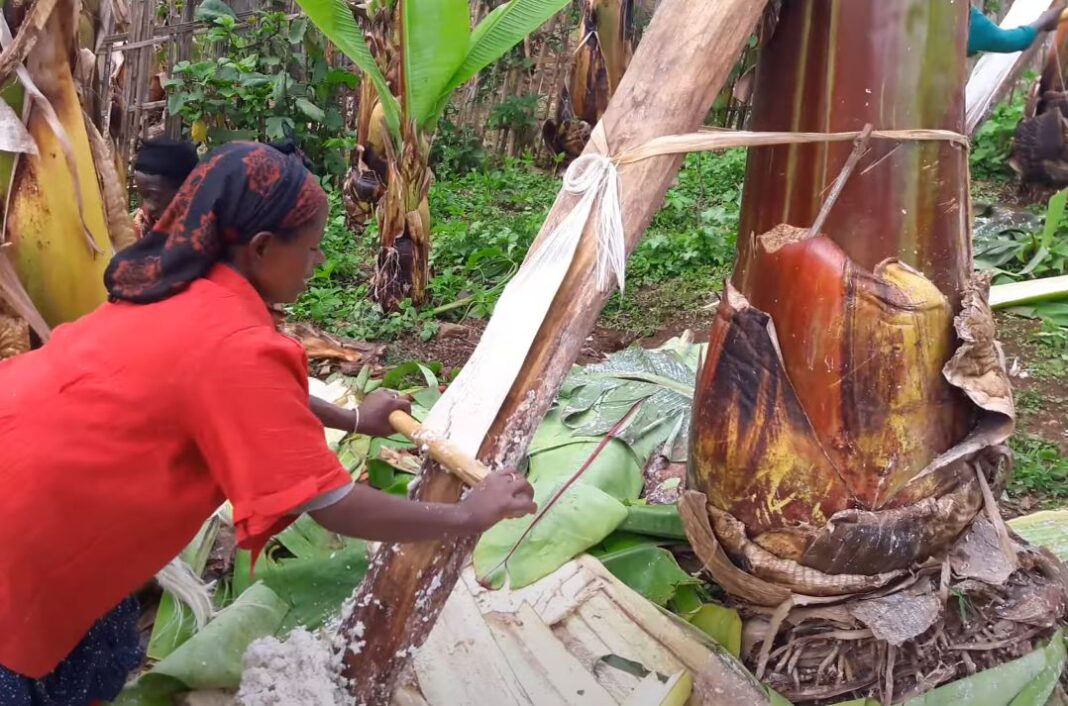Every year, there are many new areas around the world where people suffer from hunger. Climate change is mainly responsible for the growing number of starving people. Rainfall is reduced in many places and crops are not possible due to the drought. All this can be changed by a crop from Ethiopia that most people do not know. It is an enset.
Enset or “false banana”
The enset plant grows up to 10 meters high and is now a staple food in many parts of Ethiopia. Scientists say the plant enset, an Ethiopian staple, could be a new superfood and a lifesaver in the face of climate change. The banana-like crop has the potential to feed more than 100 million people in a warming world, according to a new study. The plant is almost unknown outside of Ethiopia, where it is used to make porridge and bread.
A crop that prevents hunger
Climate change is affecting the countries of sub-Saharan Africa. These countries are dependent on agriculture, which is supported by regular rains. As these countries are plagued by drought, it is necessary to start growing crops that are drought-resistant and an ideal source of important nutrients. Enset (Ensete ventricosum) is a perennial crop that was domesticated 8000 years ago. This crop grows in a wide range of conditions and crops can be harvested at any time of year. It provides an important dietary starch source, as well as fibers, medicines, animal fodder, roofing, and packaging. The crop also stabilizes soils and microclimates.
Research suggests the crop can be grown over a much larger range in Africa. “This is a crop that can play a really important role in addressing food security and sustainable development,” said Dr. Wendawek Abebe of Hawassa University in Awasa, Ethiopia.
Enset can feed more than 100 million people
Using agricultural surveys and modeling work, scientists predicted the potential range of enset over the next four decades. They found the crop could potentially feed more than 100 million people and boost food security in Ethiopia and other African countries, including Kenya, Uganda and Rwanda. Study researcher Dr James Borrell, of the Royal Botanic Gardens, Kew, said planting enset as a buffer crop for lean times could help boost food security.
“It’s got some really unusual traits that make it absolutely unique as a crop,” he said. “You plant it at any time, you harvest it at any time and it’s perennial. That’s why they call it the tree against hunger.”
There is growing interest in seeking new plants to feed the world, given our reliance on a few staple crops. Nearly half of all the calories we eat come from three species – rice, wheat and maize.
“We need to diversify the plants we use globally as a species because all our eggs are in a very small basket at the moment,” said Dr Borrell.


















